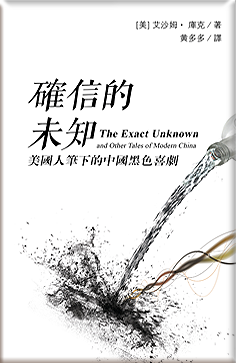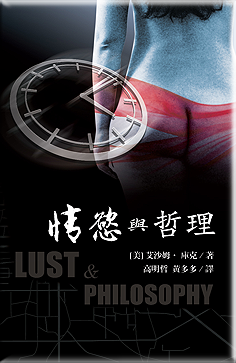A distressing experience in a Beijing restaurant that keeps slipping back in time
“I like the decor here. Look at the designs lit up on the wall by a hidden projector, and the silver mobiles over there, suspended in space like birds or fish. Notice the rafters in the ceiling above lighted blue. And that big black-and-white peony mural taking up the far wall.”
My date is ignoring me, swinging her leg back and forth under the table. She hands me the menu. It’s my first visit to the Little Kitchen, an upscale Cantonese chain with ten Beijing branches listed on the wet wipe packet. On the Mainland, Cantonese food is distinguishable from other regional cuisines not so much by the ingredients used as by the greater clarity food achieves when prepared with less oil, salt, sugar and hot peppers.
“Can you give me an idea of what you’d like to eat?” I ask.
“No.”
The unattainable Shuyu is being unaccountably difficult, her customary poise and fastidiousness missing, this elegant married 35-year old professor of psychology at a major Beijing institution, that face of hers on the knife edge of homely and sexy and the devastating ass that has us all quietly groveling, who apparels herself on the job in tight, exquisite and thus (for China) glaringly age-inappropriate attire. How could a foreigner—let alone myself—ever wing the likes of this exotic creature? I simply went up to her for some polite chitchat and asked for her cellphone number. She gave it to me. Payback for a romantic résumé of hundreds of rejections. I still can’t process it. And I’m already having second thoughts, what with these spoiled six year-old child antics.
The waitresses, dressed in snappy black silk Manchu jackets and slacks, are attentive. I go for a beef curry, Hakka-style steamed tofu, cowpea beans steamed with garlic cloves, a Heineken for myself and a cup of hot water for Shuyu. The head waitress steps in, a tall attractive woman with a walkie-talkie headset for relaying orders to staff. “I don’t recommend the beef curry,” she chirps. “Try the ‘Stewed veal rib with chili pepper in rock pot,’ which is more filling and popular among our foreign customers.”
“Okay, I’ll take your advice. Is the beer cold?”
“Yes.”
A waitress shows up with a bottle of room-temperature Heineken. I reiterate my request for cold beer. She goes back to the kitchen.
“So tell me where you acquired your taste in dress?” I ask Shuyu.
She frowns and waves her finger without looking at me, indicating, I suspect, she doesn’t want to talk. It isn’t a language problem we have, being both largely fluent in each other’s tongue, and I am using Chinese throughout. It’s something else.
The waitress is back, bearing a tray with the same warm bottle of Heineken and a bowl of ice cubes and tongs.
“No, sorry, you can’t put ice into beer to make it cold. It ruins it.” I order another brand that happens to be refrigerated.
Shuyu mimes slapping my face and pouts. I explain that China is the only country in the world that serves lager warm. You can’t serve lager warm. It’s awful. I try to think of how to make conversation with this woman. I’m on the verge of asking about her academic research but she cringes before I get any words out. I am at a loss. “So you don’t want to talk to me?”
“Humph.”
“Okay, I won’t talk then.”
I am getting annoyed. I wonder if we are going to make it through the dinner. As my anger simmers, the lights grow dimmer, and the restaurant darker and drabber. Though the layout is the same, we are no longer in the Little Kitchen but a restaurant of yore, circa turn-of-the-21st century. Instead of modish lighting and art, cheap glass chandeliers with low-wattage compact fluorescent lights; a score of them arrayed around the ceiling fail to adequately illuminate. The table sets, cheap faux blond wood, the chairs abnormally little and low, soft and rickety, like those in a kindergarten classroom, and we know why they’re small: the less material, the lower the cost.
The woman I’m with is Shuyu in her mid-twenties, or is it she? I don’t know who it is in fact but whoever it is she is by contrast very talkative. She’s having a problem with the food.
“Eh, xiaojie,” she says, summoning the waitress. Ah, nice to hear that word again, xiaojie, Miss, the euphemism for prostitute, at the time still serving as the standard address for waitress, used primarily by female customers who wish to distance themselves from their rural sisters, even as it is being replaced by the neutral and politically correct term for server, fuwuyuan, so awkward on the tongue. “This Kung Pao chicken is way too spicy, I can’t eat it.”
“None of our other customers have complained about it.”
“Look at all the chili peppers. This is too much. There are more peppers than peanuts.”
“Ma’am, that’s how this dish is made.”
“No, it’s not. You think I’ve never had Kung Pao chicken before?”
“It’s a Sichuan dish, and it’s spicy.”
“I know it’s a Sichuan dish. But this is badly made. The cook threw in the entire bag of chili peppers. It’s out of balance.”
“No one else seems to think so. It’s one of our most popular dishes.”
“You’re a Manchurian restaurant. So you don’t know how to do this dish right.”
“Of course, we do.”
“You could have at least labeled your really spicy dishes as such on the menu.”
“There’s no reason to since, as I said, the customers already know these dishes are spicy.”
“Well, anyway, take it back. I’m not paying for it.”
“I’m sorry, but there’s nothing wrong with the dish, so you have to pay for it.”
“I’ve only had the first bite and burned my mouth. I can’t eat it.”
The indomitable Chinese waitress. Foreigners are often struck by the preponderance of them standing around in the restaurants. The usual explanation is that they’re all from the countryside and can be hired cheaply; better to be overstaffed than risk lapses in service. The real reason, however, is that they are needed to deal with difficult customers at potentially every table. As the other waitresses can pick up the slack, she has all the time in the world to devote to you. She does not give in and does not let you go until everything is resolved not to yours but to the restaurant’s satisfaction. This customer sitting before me is getting angry.
“How dare you treat me like this. I came here to enjoy my meal and you’re trying to make me pay for an unpalatable dish.”
“Ma’am, you should know that Sichuan dishes are spicy. Customers expect this dish to be spicy. If we didn’t make it spicy they wouldn’t come back.”
“Can you consider the possibility that you have a bad cook and he didn’t do this dish right?”
“No, our cook is very good. We have very loyal customers who always come back.”
“So you’re saying that I’m wrong?”
“Ma’am, I don’t see what the problem is.”
“Shuyu,” I intervene, “let’s not get wound up about this. Forget about it. We don’t have to come back here. Let’s just pay for the dish and leave.”
She ignores me. “How can you treat customers like this? Do you feel proud of your job that you have to convince customers the horrible food they’re eating is good? I want to talk to the manager.”
“He’s not in.”
“Shuyu, forget about it.”
“No, I won’t. Xiaojie, let your manager know I’m going to tell all my friends who live in this neighborhood about your terrible food and service.”
I grab the bill and pay for it. Shuyu refuses to leave.
I find myself back in the Little Kitchen. In Chinese restaurants small plates of pickled seaweed or boiled peanuts are typically served gratis as appetizers. The waitress has just brought us an artifact of a more creative restaurant culture: a pair of flute glasses without bases bearing two kinds of juice, sticking out of a glass beaker filled with colored marbles. “What’s this?” I ask.
“One is apple juice mixed with sweet potato. The other is bitter melon with some other fresh vegetables. You didn’t catch what she said?”
“It’s nice to see we’re talking again.”
The stewed veal ribs and cowpea beans arrive. We eat in silence. While the latter is acceptable, the veal turns out to be bits of low-grade beef so tough my teeth fail to detach the meat from the bone. We finish both dishes and the Hakka tofu still hasn’t arrived. Shuyu reminds the waitress, who goes back again to the kitchen and returns.
“Mashang, mashang,” she assures us. Coming up.
It’s amusing, the missing dish routine. Happens regularly at restaurants, even the best. My long-held theory was not that they forget to make it, though this certainly occurs (and they will never admit it to you). Instead, they think it’s enough to go through the motions without having to follow through. As long as the waitress makes as if to submit the order, as long as we see her entering the kitchen, she need merely do a U-turn once inside the door and walk back out. The cooks likewise aren’t even in the kitchen; they’re sitting out in back by the dumpster smoking cigarettes and playing cards. I mean, the famous Hong Kong architect I. M. Pei once related how a joint-venture building project on the Mainland almost fell through when the construction workers couldn’t be roused from their daily naps. Consider it a miracle that an order manages to get submitted and cooked and brought to your table. Well, most dishes finally get served, I suppose, or business would grind to a halt. Today the work ethic is considerably improved, to be sure, but traces of the old culture are ever-present in that dish that never arrives, and the blank expression on the waitress’ face when you inquire after it.
Then a friend explained what’s really going on. All the orders get submitted and nothing is forgotten; after all, it’s a private enterprise and the more dishes they sell the more money they make. But Chinese chefs hate cooking dishes individually; it’s easier and more economical to cook them in batches. They wait until enough customers order the same dish before cooking it. Most of the time you don’t notice because you’re busy with the other dishes by the time the last one arrives—or doesn’t. Oh, I see. So why can’t they just be honest about it, I asked my friend. Why doesn’t the waitress announce at each new table, “May I suggest the Hakka tofu? Some of our customers have been waiting 45 minutes for this dish and if you kindly order it the cooks may be persuaded to make it right away and everyone will be happy.” Or, “If you order two servings of this dish, the cook said he’ll speed things up.”
Then the game begins to get our dish. The head waitress with her state-of-the-art headset is nowhere to be seen. I announce to another waitress: “Unless the dish arrives in five minutes, we’re leaving and not paying for it.”
Returning again from the kitchen she says, “It’s being made right now and will be up in a minute.”
She then walks over to the waitress station and stands there doing nothing. Five minutes later I get up to leave and head to the cashier. Shuyu blows it by remaining seated. The waitress calls our bluff and doesn’t move. We have no choice but to wait. Another five minutes elapse. Now Shuyu too is getting impatient and reminds the waitress, who starts toward the kitchen but is distracted on the way by a table of customers wishing to order.
“Let’s leave,” I say and get up.
“No, I’m still hungry.”
“So this is the only way I can get you to talk to me?”
“You’re stupid.”
I drop back in my chair. It scrapes against the cement floor. The restaurant is a lot smaller now, with bare fluorescent lighting and white walls, a big poster of a tropical beach tacked on one. Circa early ’90s. It’s crowded and noisy, the hard surfaces ricocheting the babbling of the customers and the screeching of the metal chairs. Shuyu looks about twenty years younger but it’s clearly her, and she has the sweet shy expression of a high school student.
The waitress plops down a dish of stir-fry garlic shoots with shredded pork on the chipped tabletop. Predictably it has been cooked with so much oil it’s filled to the brim. Not an insurmountable problem; you can pick the pieces out with your chopsticks and let them drain off. Except that the table is uneven, causing the oil to spill over and stream across the tabletop and—I now realize—onto my pants. I hastily extract a strip of toilet paper from its plastic dispenser on the table to rescue my pants from the worst of the damage. I call the waitress. “Look at this.”
“What, you spilled it?”
“No, you spilled it. Help me clean it up. And how about buying me a new pair of pants, since it’s almost impossible to remove this kind of oil stain. I want to talk to the manager.”
“He’s not in.”
“Yeah, of course. And what the hell is this in the dish. Look, somebody’s hair! Damn you treat your customers like this!”
The cooks now appear at the kitchen entrance smirking at me in their dirty smocks. This is too much. I stand up and smash the dish on the floor. Ditto the teacups and teapot with its cheap jasmine tea clogged with twigs and clouded with sediment. Shocking the whole restaurant into silence. The manager materializes and is yelling at me. I’m too busy grabbing bottles of sorghum spirits off the shelves to hear what he says and smashing them on the floor as well. It’s no big loss for them. The stuff is all fake anyway and comes out of the same vat, including the expensive Maotai and Wuliangye brands, made with who knows what horrific toxic ingredients. The alcohol gives off its powerful telltale fragrance of rotting flora. When I eye the big glass jugs of medicinal liquor on the counter with the snakes, iguanas, and wolfberries, they get scared. That’s pricier stuff. Before they can stop me, I’m plunged into another restaurant, smaller and shabbier yet.
I am alone apart from a few other customers. Nursery-style wallpaper unpeeling from the walls. Likewise themed plastic tablecloths with cartoon characters on rickety foldout card tables (rolls of toilet paper again for napkins) and white plastic molded chairs. The floor is lined with fish bones, peanut shells, cigarette butts, and spit. Welcome back to 1980s Beijing. Man, has time flown. I need a drink and order a bottle of beer. A chipped rice bowl serves as a glass. At least the beer is cold: there’s no heating in the restaurant and our breaths flame out of our mouths. A neighboring table is eating fish-flavored shredded pork—a standard dish in “home-style” restaurants.
“I want that, the Yuxiang Rousi,” I tell the waiter, who is doubling as the cook.
“What did the foreigner say?” he asks the other customers.
“Look at me. Not at them. I am talking to you. I want the Yuxiang Rousi,” I repeat, in perfect Mandarin.
“What did the foreigner say? I don’t understand him.”
A customer reiterates my request to the waiter, who turns to me and shakes his head.
“What’s the meaning of this?” I ask.
He ignores me. I call him back. I order a stir-fried eggs with leeks, listed on the board. This seems to work and he disappears into the kitchen. The dish that arrives resembles a plate of vomit. It’s a mixture of burnt eggs and gristle of some sort and not a shred of leek. The rice is cold and crumbly. The food is quite inedible.
Meanwhile a new table has arrived and they also order fish-flavored shredded pork without a hitch. Not wanting to be plunged into a 1970s factory canteen, I control my anger. I know that in order to get out of this hole I have to be nice. Their fish-flavored shredded pork arrives minutes later steaming hot. I point this out to the waiter. Nothing registers. I follow him back into the tiny kitchen. Dark and squalid is an understatement; I can only liken the space to the interior of a dumpster. I repeat my request for the dish as politely as I can. He’s busy. I tell him I’ll cook it myself.
I manage to bring the dish to pass, coordinating my movements not to get in his way. He’s so impressed with my skill at cooking that he’s now laughing and showing off his new foreigner friend to the customers.
My charm works, though with not quite enough force to whisk me back to the present. I am beamed up only as far as the aforementioned turn-of-the-century restaurant. Shuyu or whoever the woman is and the waitress are still going at it. The waitress has reduced her to tears.
“Xiaojie, I came here for a nice meal. You are employed to give the customers what they’re paying for and treat them with respect so that they will come back. If your boss knew you were doing this you would be fired immediately. You’re a terrible waitress, causing such ill will. How can you stand yourself!”
“Ma’am, I have been working here since this restaurant opened two years ago. You are the first customer I’ve encountered to be needlessly causing such trouble. Go ahead, don’t come back! We have plenty of customers to take your place.”
I too want to tell the customer to shut up. “Please, let’s leave. There must be another restaurant around here we can go to that does a good job at Kung Pao chicken.”
Sobbing, she gives up.
With that, I’m thrust back to the Little Kitchen. The Hakka-style tofu has arrived and it’s not bad even with the pork filling being too fatty.
Shuyu slips her arm into mine as we leave the restaurant. It’s cold and rainy outside and this could mean a long wait for a taxi—which have a way of disappearing from the streets when they are most needed—back to my place. She leans into me, under the bus stop awning as the rain begins to pour, and rests her head on my shoulder.
Like this story? Buy the book (see contents):
The Exact Unknown and Other Tales of Modern China
See also:
Multilingualism and the time travel novel
Categories: Fiction















Compelling as always. I can feel myself following him through time. There is a point in which we all smoke, though its burning point is always changing.
This IS funny because I can see you totally losing it one day after a million beers that have been too warm with the same old responses—–maybe one day you really will snap….
No, I’m not going to snap.